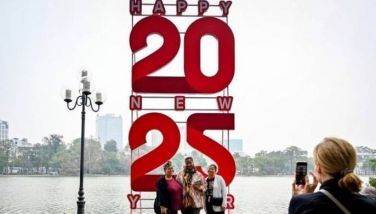Study: Open retail market good for Pinoy consumers
CEBU, Philippines — A study revealed that it will be beneficial for the Filipino consumers if the Philippines will push through with its plan to fully open the retail market to global players.
The study conducted by Colliers International Philippines showed that the proposed liberalization of entry of foreign retailers is a step towards the right direction.
The move will usher in more foreign brands to compete in the food and beverage (F&B) and home furnishing categories, which are currently dominated by local players.
From 2018 to 2020, Colliers sees F&B and fast fashion businesses occupying a combined 50 percent to 60 percent of new retail space initially in Metro Manila.
Data from the Philippine Statistics Authority (PSA) revealed that F&B and Restaurants and Hotels are among the fastest growing consumer spending sub-segments in the Philippines.
Socioeconomic Planning Secretary Ernesto Pernia announced earlier that the government was planning to lower the paid-up capital requirement for foreign retailers setting up shop in the country to $200,000 from $2.5 million at present.
The threshold was set to protect local micro, small, and medium enterprises (MSMEs).
The lowering of the amount would mean foreign MSMEs could enter the country with a capital of just about P10 million.
In Metro Manila alone, the food and beverage mix is already entered by foreign brands such as Denny’s Diner, Paradise Dynasty, Wolfgang’s Steakhouse, Harry’s, Pink’s Hotdogs, and Olivia & Co. Sarabeth’s, a popular bakery from New York is reportedly opening a branch in the country’s capital while Wolfgang’s opened a new branch in Podium mall. New York’s Magnolia Bakery recently opened a branch in Bonifacio Global City, the first in Southeast Asia.
These brands are seen to branch out in other urban centers in the Philippines, particularly Cebu.
Presidential adviser for entrepreneurship Jose Concepcion III said that further liberalizing the retail trade sector in favor of foreign investors would lead foreigners to put up franchises in the country, which would need local partners “to navigate” the domestic market.
Concepcion, who heads food and beverage company RFM Corp., joins the debate on the retail trade issue among business leaders who see the government policy differently. Some think the move would harm small local enterprises while others think it would be beneficial to business and the local market.
Concepcion said such a move would mean that more business concepts would enter the Philippines.
Recently, the Philippine Retailers Association (PRA-Cebu) called the local players to brace themselves from possibly being swallowed by “big guys” in the retail trade.
PRA-Cebu president Robert Go made this call to retailers specifically in Cebu, as the onset of retail giants’ control in the country is happening. (FREEMAN)
- Latest


























